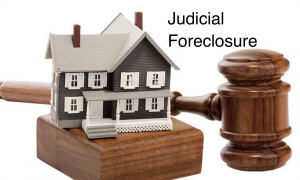 By Brian Moreno, Senior Associate at SwedelsonGottlieb, Community Association Attorneys
By Brian Moreno, Senior Associate at SwedelsonGottlieb, Community Association Attorneys
In the assessment collection arena, there have been a number of pro-homeowner court decisions that affect a community association’s ability to collect unpaid HOA/Condo assessments. First, courts have held that associations must accept partial payments, which has allowed homeowners to attempt to avoid foreclosure by paying only delinquent assessments reducing the assessment balance below the $1,800 (or 12-month) threshold. Second, courts have held that an association must strictly comply with the Davis-Stirling Act with regard to imposing an assessment lien against a delinquent owner’s property and foreclosing that lien. These rulings create additional challenges for an association attempting to collect delinquent assessments.
Consequently, in recent years, community associations have attempted to adjust their collection policies and procedures in response to these court decisions; however, owners are continuing to take advantage of these new laws for purposes of challenging assessment liens and tendering partial payments to reduce their assessment balance, leaving attorney fees, costs, interest and trustees fees unpaid. Homeowners are becoming more savvy in challenging assessment liens and obstructing the association’s attempts to foreclose.
Given this, what are an association’s options if a seemingly defective lien has been recorded? What if an owner pays only assessments in an attempt to avoid paying the collection fees? What are the association’s options?
One option may be “Equitable Foreclosure.” What is Equitable Foreclosure?
In general, even if an HOA assessment lien is defective, equity (i.e., fairness) will sometimes create a lien on property when necessary to accomplish substantial justice and protect creditors (i.e., a community associations). For example, a court may sometimes throw a life-line to mortgage lenders if a deed of trust is improperly recorded or recorded against the wrong property. Courts will construe the existence of equitable liens where lenders have erroneously created a defective deed of trust or mortgage. In fact, California courts may impose an equitable lien in the following circumstances:
1. The parties have clearly attempted or intended to make real property security for an obligation.
2. Despite the lack of any formal mortgage or deed of trust it is apparent that the parties intended to create a security interest in property.
3. Where the parties have otherwise clearly attempted or intended to make real property security for an obligation.
4. In the absence of any agreement, where it is necessary to prevent unjust enrichment.
California court decisions have held that the business of the courts is to administer justice as nearly as may be in accordance with fixed rules of law and procedure, aided wherever and whenever proper and necessary by established and governing principles which relate to equity jurisprudence. (Estate of Kline (1934)) Foreclosure is an equitable action, and a trial court, sitting in equity, has broad, flexible power.
Applying these concepts to community associations, it stands to reason that if an association violates the Davis-Stirling Act or records a defective assessment lien, a court may nonetheless be able to permit an association to foreclose on the property even if a minor violation has occurred. Likewise, the equitable foreclosure claim may also allow the Judge to permit the association to foreclose despite a last-minute partial tender of unpaid assessments.
Obviously, association boards, community managers and collection service providers should be meticulous with respect to the assessment collection process and following all of the procedural requirements. However, if an association finds itself in a difficult situation, the equitable foreclosure remedy may still be available to rescue an association. That said, associations should consider implementing the following options if a suspected error has occurred or defect noticed:
1. Consult with legal counsel to determine if the mistake is significant and needs to be corrected.
2. Consider re-recording the assessment lien to cure the defect.
3. Consider entering into a payment plan agreement where the owner agrees to waive defenses, agrees to the validity and enforcement of the assessment lien.
4. Consider pursuing “Equitable Foreclosure” as a cause of action in the collection lawsuit.
5. Consider re-starting the collection process or a portion of the process prior to proceeding with foreclosure.
While a delinquent owner may be able to challenge an assessment lien that is procedurally defective or seek to prevent an association from pursuing foreclosure if the assessment balance is below the $1800 (or 12 month) threshold, depending on the circumstances, a court’s equitable powers may kick-in at some point to aid the association in creating a lien against the property or allowing an association to foreclose the lien of an owner that continues to cheat the system by making repeated partial payments for assessments only. An association may be able to argue that despite the Davis-Stirling Act, fairness dictates that the association should be entitled to a lien and to foreclose that lien to accomplish substantial justice.
Brian Moreno, is a Community Association legal expert at SwedelsonGottlieb. He can be contacted via email at bdm@sghoalaw.com
 HOA Law Blog
HOA Law Blog


